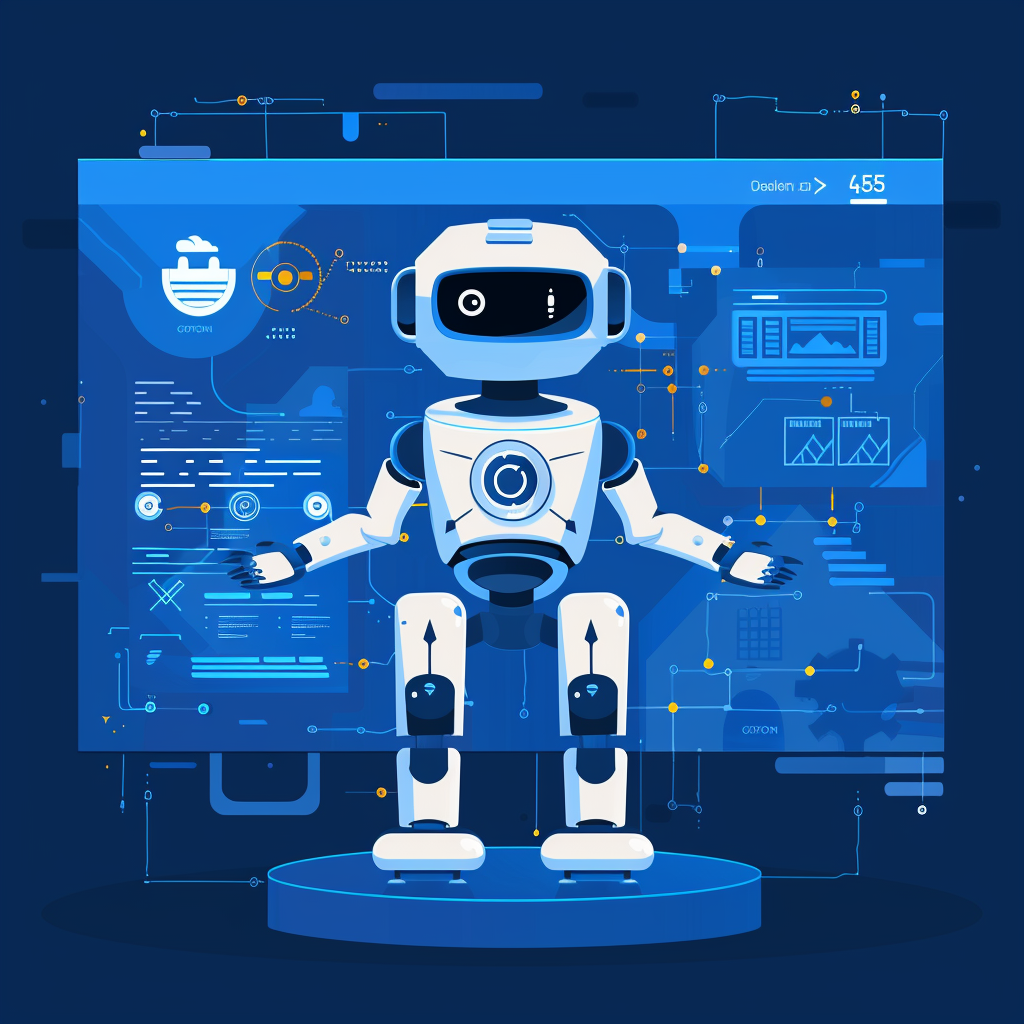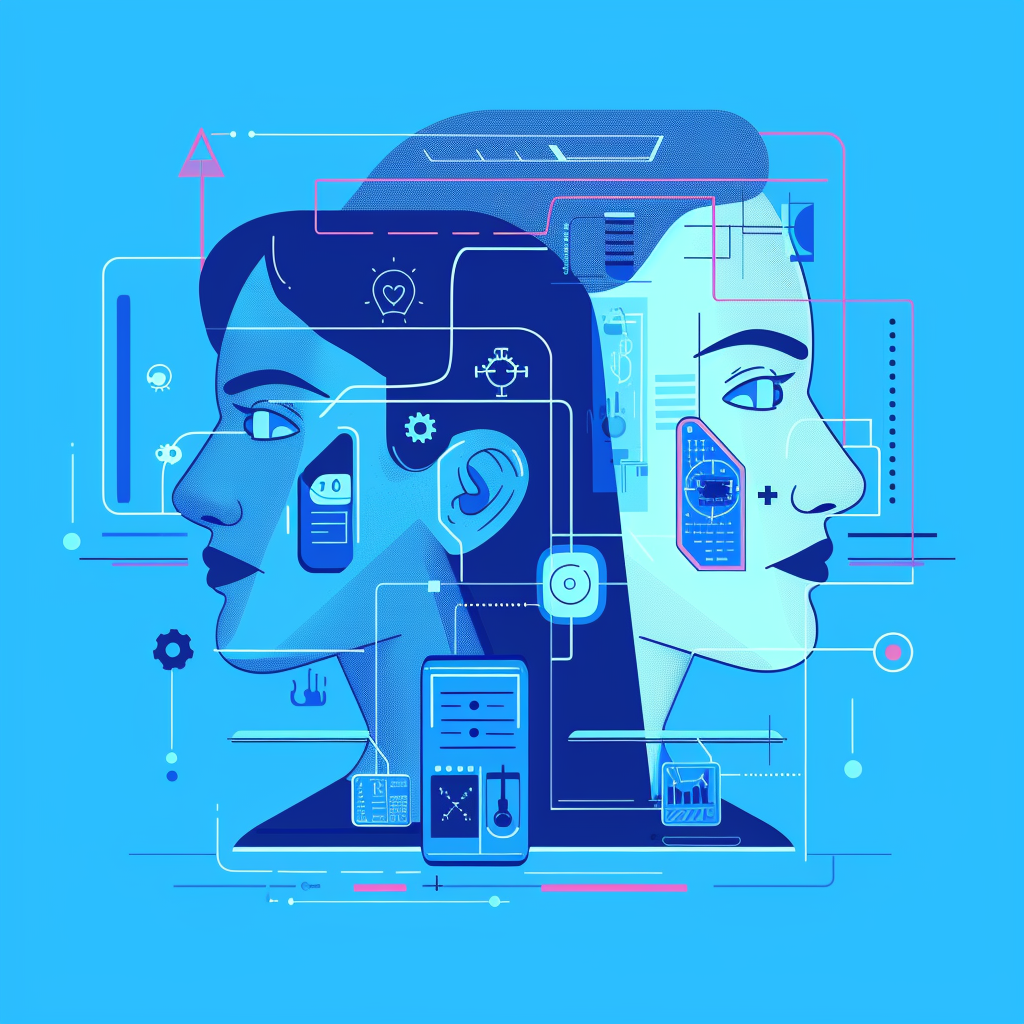Artificial intelligence is now used in many fields. Two examples are marketing and business, where AI offers many advantages. According to PwC estimates, using AI for business automation will increase individual countries’ gross domestic product (GDP) by 26% and boost the global economy by almost $16 trillion.
This article will show how modern digital technologies are used in the global market, what a “smart” algorithm can do, and what results it gives. You will also learn more about the competitive advantage AI implementation gives companies over competitors.
Why Does a Business Need AI?
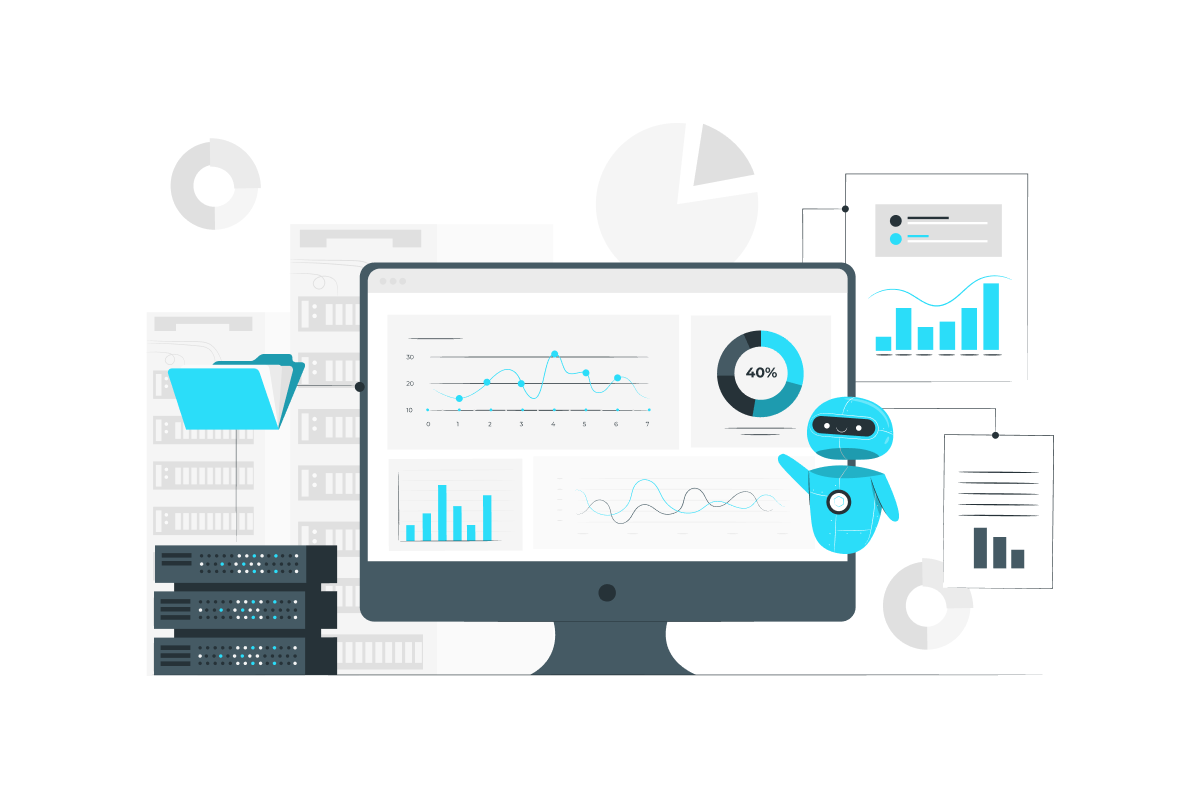
There are many benefits to implementing AI in business. One of them is improving the quality of decisions support system made, thereby increasing the efficiency of many aspects. Here are some more fundamental reasons why AI can benefit businesses:
- Business automation;
- AI implementation in data analytics;
- Increased personalization;
- Forecasting and planning;
- Improved customer service.
AI implementation in our daily lives is primarily a practical assistant to reduce the likelihood of errors and increase productivity. In business, it can handle more mundane tasks so that teams can focus more on creative and strategic tasks.
In addition, AI is now known for creating personalized interactions with customers, providing precisely the right products, services, or recommendations that match their preferences and needs. Thus, you can see that implementing AI virtual assistants into business processes makes the company’s work easier.
Applications of Artificial Intelligence Across Industries
Artificial intelligence can be implemented in different areas of life. Here are a few AI implementation examples:
- Banking (forecasting, chatbots in mobile banking applications, risk detection and management).
- Information security (anti-fraud, analysis of old threats and prevention of new ones, information for creating a common database).
- Industry (control of production processes and their optimization, equipment diagnostics, information about breakdowns, preventive measures, smart automation).
- Trade (analysis of purchasing activity and the effectiveness of marketing strategies, procurement management, development of personalized loyalty programs, and in-depth predictive analytics).
- Medicine (documentation, diagnostics).
This is only a small sample of AI implementation ideas. Naturally, solving all of the above problems is also possible for humans, but it will require much more time and resources.
Basic Steps of Implementing an AI Virtual Assistant
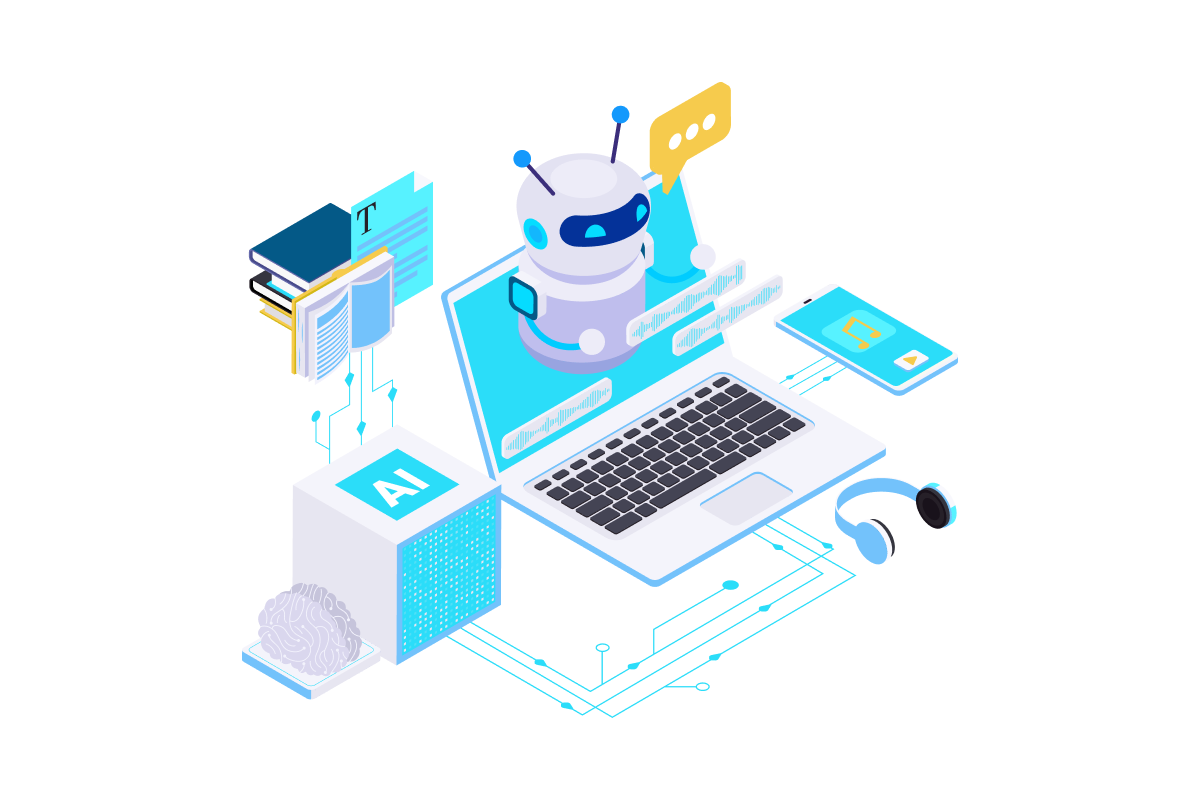
Working with the implementation of AI takes place in several stages. The first and primary step is that the entrepreneur needs to collect as much information as possible about sales in recent years—such a data array is called a dataset.
Fortunately, with the introduction of online cash registers, this information is saved automatically, and the system synchronizes with it in just a few clicks, without manual entry. Sometimes, you can get by simply systematizing existing information, although you will have to spend more time and effort in some cases.
Developing a self-learning algorithm will require money and time, but the business area will influence the level of costs.
For example, retail chains can use ready-made solutions rather than creating an algorithm from scratch. One of the functions of such systems is to increase revenue. On average, responsible AI implementation pays for itself after just three months of use and then begins to generate net profit due to significant cost optimization and increased sales.
Basic steps for implementing AI:
- Collecting and digitalizing information for analysis and inputting it into a data processing program.
- Creating an algorithm from scratch or modifying it based on a framework.
- Training and self-learning of the algorithm.
- Creation of a new comprehensive marketing strategy for the enterprise and all business processes, taking into account the capabilities of AI.
All these steps require a complete rethink of the role of the top manager in the company. In the age of artificial intelligence, it is not enough to simply be a “manager.” Businesses require a leader with sufficient will, attention to people, and courage to completely restructure business processes within the company and launch a digital transformation process that will never stop.
Challenges in Artificial Intelligence Implementation
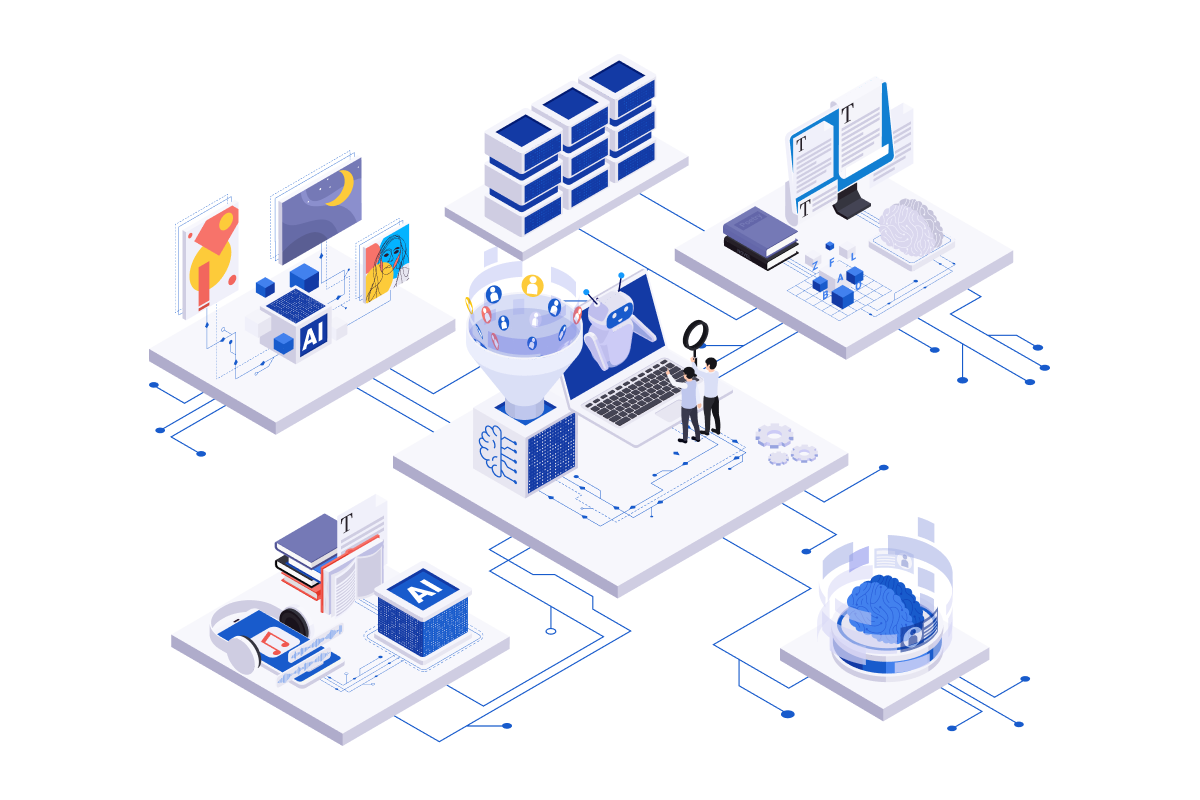
Even if you follow the AI implementation strategy, certain problems and blockers may arise. Below are important situations to consider:
- Relationship with other processes. When implementing marketing automation and AI, it is worth considering how it will affect other business processes. Improvement in one area does not always translate into overall growth.
- Unqualified contractors. The selection of qualified specialists and contractors for algorithm development and successful AI implementation plays a key role. Only a team that is deeply immersed in the business will be able to achieve success.
- Lack of qualified employees. Your employees must be ready to work with new resources and for AI business process automation. To overcome this complexity, training and support must be provided.
- Lack of resources. Data Integration of an AI for business automation solution may require additional resources such as computing power, data, and time.
- Budget. Integration and AI business automation can be expensive. Consider budget constraints.
Before introducing AI into your business, ask yourself key questions. Is this really necessary for your project? Do you have the necessary resources and qualified specialists? Assess the potential benefits and AI implementation challenges, and only then proceed with integration. If you don’t have answers to these questions, you can contact consultants who will formulate these answers for you!
Designing and Implementing an Azure AI Solution
Discover Azure AI, a suite of artificial intelligence (AI) for developers and data scientists. Azure AI Services is a comprehensive set of custom and predefined AI tools, APIs, and models that help you modernize business processes faster. Build intelligent tools and applications using rich language models and deliver innovative solutions that automate document processing, improve customer service, understand root causes of anomalies, extract insights from content, and more. Key benefits of Azure for AI include:
- Development on your terms;
- Deploying mission-critical artificial business intelligence solutions; and
- Using AI responsibly.
Learn the basics of artificial intelligence and gain practical personalized experiences in business process automation with AI. Plus, explore the latest AI platforms and products with AI and machine learning resources designed specifically for professionals.
Cost of Implementing AI in Business
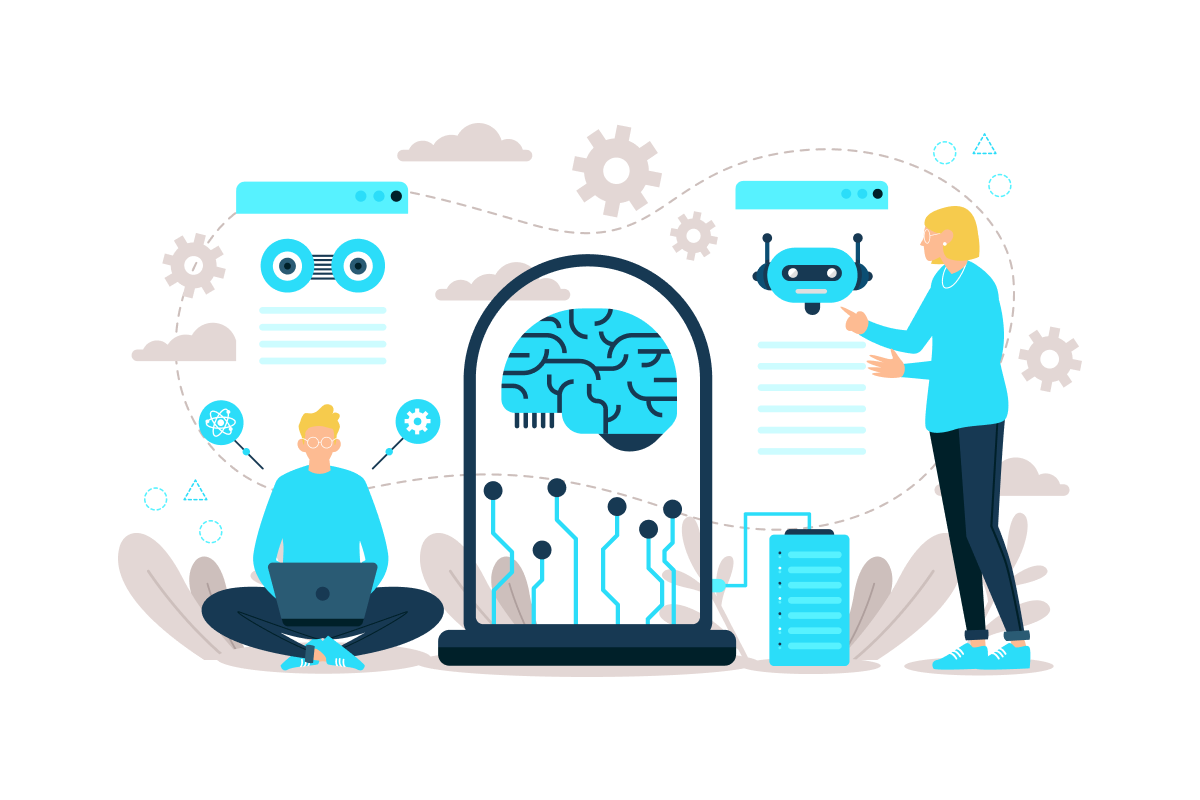
Integrating artificial intelligence into a company’s business processes is becoming increasingly popular as AI technology continues to evolve and demonstrate its ability to improve efficiency and productivity and eliminate the need for routine tasks. However, like any other investment, implementing AI requires significant costs.
The cost of AI implementation in business varies and depends on many factors:
- Type of solution, each may have different AI implementation costs.
- The project’s size and complexity, as well as different AI implementation strategies.
- Required resources for AI implementation projects. Servers with GPUs are especially expensive.
- Support and maintenance of an AI implementation plan.
- Training.
- Data security and its enforcement is also an important cost item.
Despite the initial costs, AI can deliver significant returns on investment due to efficiency improvement, reduced costs, and improved service quality. The most common benefit is that you will spend much less on employee salaries.
Conclusion
Overall, using such a helpful tool as AI makes a big difference for companies. They create new business development opportunities rather than wasting employees’ time and resources on routine tasks. Artificial intelligence helps companies identify new profitable and strategic opportunities, massively boosts existing business processes, and, as a result, creates new products and services. This allows companies to remain competitive and successful in the long term.


